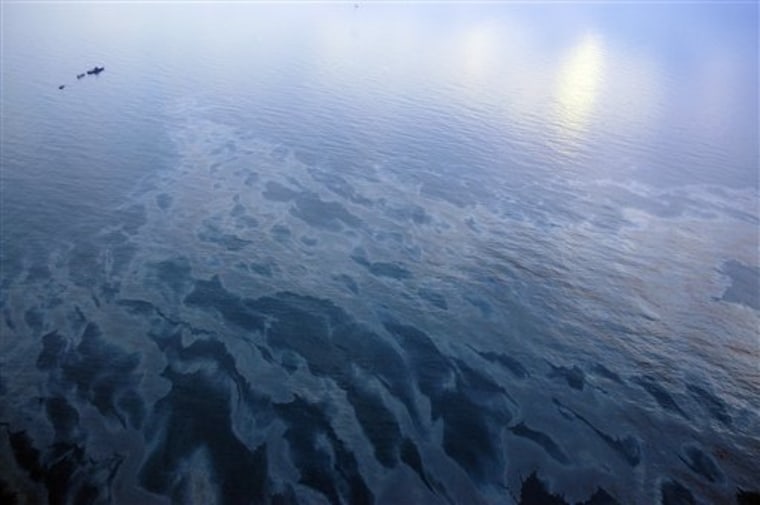The Russian navy finally admitted Friday it caused an oil slick off Ireland's southwest coast — 12 days after European and Irish marine authorities first spotted the threat and linked it to the Russians' breakdown-prone aircraft carrier.
Ireland's government and coast guard also offered a much bigger estimate for the size of the slick than the Russians did — ten times as big. But they agreed with a Russian navy statement that the slick was unlikely to pose a major risk to Ireland's coastal habitat, thanks chiefly to unusually mild seas that were keeping the slick offshore.
In Moscow, Russian navy spokesman Capt. Igor Dygalo said unspecified ships spilled 20 to 30 metric tons of oil. It was Russia's first public admission of involvement, although Russian Navy officials admitted their role in a private meeting Monday in Dublin with Irish Coast Guard commanders.
The Irish Coast Guard said Friday that the size of the remaining slick involved an estimated 300 tons of light crude. It said the mishap happened when Russia's only aircraft carrier, the Admiral Kuznetsov, was being refueled by an accompanying tanker.
The Kuznetsov has been plagued with technical problems since entering full service in 1995, suffering lengthy dockings for repairs.
Since leaving its Arctic base in Severomorsk in December, the carrier has been accompanied by a tanker and at least one tugboat in case of a breakdown. In January, while the carrier was operating off Turkey's coast, a fire on board the ship killed a crew member.
Ireland estimates it has already spent more than $325,000 monitoring the slick by helicopter and screening shellfish for pollution. Its transport department has asked the Russian Federation to reimburse Ireland for at least some of that expense.
The Irish Coast Guard said the slick was moving slowly eastward about 45 miles south of the County Cork coastline, and was unlikely to reach shore before disintegrating, unless the wind strengthens and changes course unexpectedly.
"(The slick) is continuing to weather and significantly disperse ... and has not significantly moved over the last number of days," it said.
